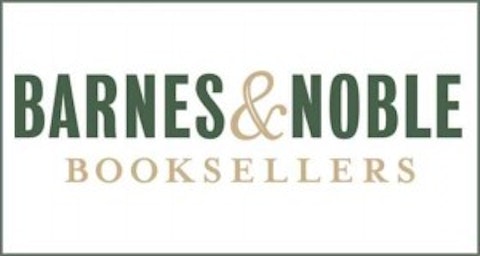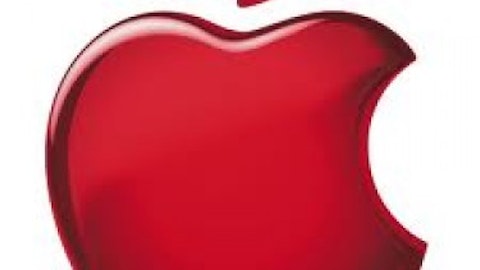The shift to digital technology is affecting nearly all the industries across the board. Few would have thought that even the book-selling business could become a culprit of the advances in technology. Nonetheless, this is what is happening to Barnes & Noble, Inc. (NYSE:BKS).

Last year, Microsoft Corporation (NASDAQ:MSFT) and Pearson PLC (ADR) (NYSE:PSO) invested in Nook Media, prompting the media to suggest that Barnes & Noble, Inc. (NYSE:BKS)’s Nook business was the future of the bookseller’s digital book sales. However, based on the most recent quarter results, it seems as though that dream is all but dead.
What happened?
In the company’s most recent results, sales from Barnes & Noble, Inc. (NYSE:BKS)’s Nook business plunged 34% year-over-year, while revenue from Barnes & Noble Retail, including BN.Com, declined 10% from the same period a year ago. The 34% decline in Nook sales follows the 26% fall reported in the company’s FQ3, ended January 31.
The decline in B&N retail sales is attributable to the massive fall in the Nook business, which should have boosted digital book sales. This comes at a time after the digital book industry grew 43% in 2012. This indicates that Barnes & Noble, Inc. (NYSE:BKS) failed to rally along with the industry, as the paradigm shift to digital technology in the reading business continues to advance.
The results from the Nook business also affected the overall performance of the company as the company’s loss from continuing operations increased to $122 million, the largest in its history. However, the 8.8% decline in same store sales depicts how the unit once thought to be the savior isn’t doing well.
So what happens now?
The Nook HD+ tablets have no place in the tablet industry. Apple Inc. (NASDAQ:AAPL)’s iPad mini and Amazon.com, Inc. (NASDAQ:AMZN)’s Kindle Fire HD are definitely miles ahead of the Nook. Despite being the cheapest among the trio, the Nook has lost business to these industry giants, which already operate under a strong brand.
This is perhaps the reason why Barnes & Noble has sought to offer its Nook devices to an unnamed third party, which begs the question whether the company would be able to sustain its digital book business going forward. This move also signals that the company has admitted defeat in the tablet battlefield.
Barnes & Noble’s strategic positioning for the future seems to have failed with the fall of Nook Media. There is no short-cut to this, as digital readership forms the future of learning. Soon, even libraries may switch completely to digital reading.
It seems as though Barnes & Noble might have to rely on third-party tablets in its e-reading business. Microsoft, already a strategic partner in the company’s Nook business, seems to be a good candidate with its Surface RT tablets. However, its minute market share may not offer a lot in terms of addressable market. Apple on the other hand, holds the lion’s share of the market in the tablet business with its iPads accounting for approximately 40%.
Amazon, the world’s largest online retailer, began as an online bookstore, but later diversified to DVDs, CDs, Video, and MP3. Its Kindle Fire business came to life as part of a strategic plan to spur growth in its reading business. The company continues to struggle for reporting good margins from the unit, as it dwells on competitive pricing to try to capture some market share from Apple and Samsung. Amazon currently has a market share of 3.7% according to IDC’s Q1, 2013 data.
Performance and valuation
Barnes & Noble’s most recent quarterly revenue fell 7% year-over-year compared to Amazon’s 22% increase, while Apple’s revenue rose 11%. Nonetheless, the three companies have very different business models with the common factor between Apple and Barnes & Noble being the sale of tablets. On the other hand, Amazon is a more comparable rival, although it does have a host of business units different from Barnes & Noble.
Nonetheless, the bookseller’s gross margin is tied with Amazon’s at 25%, while Apple’s stands at 40%. Apple’s operating margin of 31% easily trumps Amazon’s 1%, while Barnes & Noble has a loss margin of 3%.
Barnes & Noble’s price to earnings growth (PEG) of 0.10 times is indicative of the company’s unattractiveness to investors, while Amazon’s PEG of 5.84 indicates that investors are very optimistic about the online retailer. On the other hand, Apple’s PEG of 0.51 times is indicative of the increasing competition in the industry against its expensively priced products.
The bottom line
Barnes & Noble is faced with a situation whereby it will have to decide on the future of its Nook business. If it decides to offload it, then it may have to find a strategic partner as it seeks to capitalize on the rapidly growing digital book-selling business.
I cannot picture the company retaining the loss-making unit, which has been disappointing over the last one year. If indeed the company dumps the Nook business, and finds a more vibrant partner, then a recovery could be on the cards. However, for now, the red light is too bright to ignore.
The article Barnes & Noble’s Nook Business Is Struggling, But Can it Recover? originally appeared on Fool.com and is written by Nicholas Kitonyi.
Nicholas Kitonyi has no position in any stocks mentioned. The Motley Fool recommends Amazon.com and Apple. The Motley Fool owns shares of Amazon.com and Apple. Nicholas is a member of The Motley Fool Blog Network — entries represent the personal opinion of the blogger and are not formally edited.
Copyright © 1995 – 2013 The Motley Fool, LLC. All rights reserved. The Motley Fool has a disclosure policy.




